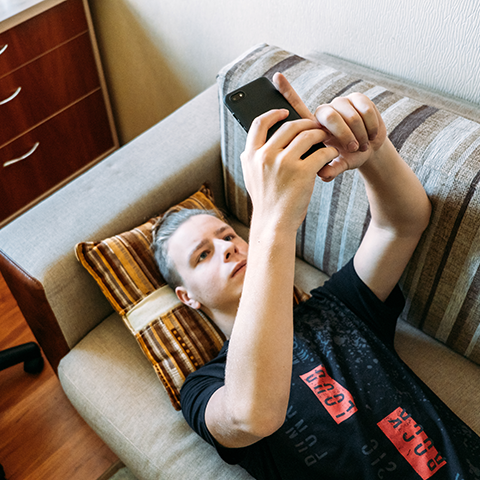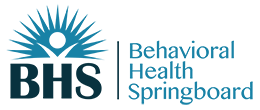Adolescent Gambling and Gaming Series (All 7 Modules and Assessment)
 This course series will take behavioral health clinicians through seven modules providing psychoeducation, evidence-based treatment modalities, screening tools, and evidence-based prevention tools and strategies. The modules will also explore how the brain is impacted by both substance misuse and behavioral addictions and provide an understanding of how the power of advanced technology, marketing, advertising, and persuasive design coupled with commercial interests have made an impact on our lives in both positive and negative ways. Behavioral health clinicians will learn to discuss the online world by incorporating language in media literacy and the importance of a healthy media diet, and be left with a feeling of hope found in research, evidence-based practices, and community partnerships.
This course series will take behavioral health clinicians through seven modules providing psychoeducation, evidence-based treatment modalities, screening tools, and evidence-based prevention tools and strategies. The modules will also explore how the brain is impacted by both substance misuse and behavioral addictions and provide an understanding of how the power of advanced technology, marketing, advertising, and persuasive design coupled with commercial interests have made an impact on our lives in both positive and negative ways. Behavioral health clinicians will learn to discuss the online world by incorporating language in media literacy and the importance of a healthy media diet, and be left with a feeling of hope found in research, evidence-based practices, and community partnerships.
 This course will take behavioral health clinicians through seven modules providing psychoeducation, evidence-based treatment modalities, screening tools, and evidence-based prevention tools and strategies. The modules will also explore how the brain is impacted by both substance misuse and behavioral addictions and provide an understanding of how the power of advanced technology, marketing, advertising, and persuasive design coupled with commercial interests have made an impact on our lives in both positive and negative ways. Behavioral health clinicians will learn to discuss the online world by incorporating language in media literacy and the importance of a healthy media diet, and be left with a feeling of hope found in research, evidence-based practices, and community partnerships.
This course will take behavioral health clinicians through seven modules providing psychoeducation, evidence-based treatment modalities, screening tools, and evidence-based prevention tools and strategies. The modules will also explore how the brain is impacted by both substance misuse and behavioral addictions and provide an understanding of how the power of advanced technology, marketing, advertising, and persuasive design coupled with commercial interests have made an impact on our lives in both positive and negative ways. Behavioral health clinicians will learn to discuss the online world by incorporating language in media literacy and the importance of a healthy media diet, and be left with a feeling of hope found in research, evidence-based practices, and community partnerships.
- Establish a conceptualization of youth gambling behaviors.
- Understand how gambling operates as a commercial enterprise.
- Explore the convergence between gambling and gaming.
- Recognize risk factors associated with youth gambling.
 This module provides an introduction to prevention science and its role in promoting youth health and well-being. It covers how prevention education can mitigate the risks of mental, emotional, and behavioral (MEB) disorders, focusing on gambling and digital media use. Participants will explore how neurological health ties into these prevention strategies.
This module provides an introduction to prevention science and its role in promoting youth health and well-being. It covers how prevention education can mitigate the risks of mental, emotional, and behavioral (MEB) disorders, focusing on gambling and digital media use. Participants will explore how neurological health ties into these prevention strategies.
Learning Objectives:
- Describe prevention science frameworks.
- Connect health literacy with youth prevention education.
- Incorporate prevention and health promotion strategies into youth work.
- Analyze the impact of prevention education on gambling and digital media use.
 This course will take behavioral health clinicians through seven modules providing psychoeducation, evidence-based treatment modalities, screening tools, and evidence-based prevention tools and strategies. The modules will also explore how the brain is impacted by both substance misuse and behavioral addictions and provide an understanding of how the power of advanced technology, marketing, advertising, and persuasive design coupled with commercial interests have made an impact on our lives in both positive and negative ways. Behavioral health clinicians will learn to discuss the online world by incorporating language in media literacy and the importance of a healthy media diet, and be left with a feeling of hope found in research, evidence-based practices, and community partnerships.
This course will take behavioral health clinicians through seven modules providing psychoeducation, evidence-based treatment modalities, screening tools, and evidence-based prevention tools and strategies. The modules will also explore how the brain is impacted by both substance misuse and behavioral addictions and provide an understanding of how the power of advanced technology, marketing, advertising, and persuasive design coupled with commercial interests have made an impact on our lives in both positive and negative ways. Behavioral health clinicians will learn to discuss the online world by incorporating language in media literacy and the importance of a healthy media diet, and be left with a feeling of hope found in research, evidence-based practices, and community partnerships.Learning Objectives:
- Understand how persuasive design features in gambling and gaming influence human behavior and decision-making.
- Identify cognitive distortions like near-miss effects and losses disguised as wins that promote compulsive engagement.
- Analyze the roles of cues and uncertainty in increasing motivation and play duration in gambling environments.
- Examine the psychological and neurological factors, including the role of dopamine, that contribute to addictive behaviors in gambling.
 This module explores the five types of digital media overuse (DMO) and their effects on mental health, behavior, and daily life. It examines the distinction between overuse and addiction, emphasizing the diagnostic criteria for conditions like Gaming Disorder and Compulsive Sexual Behavior Disorder (CSBD). Learners will explore the neurological impact of DMO, including dopamine-driven behaviors and persuasive design techniques that encourage excessive engagement. The module also covers assessment strategies, harm reduction approaches, and family-based interventions to support individuals struggling with digital media overuse.
This module explores the five types of digital media overuse (DMO) and their effects on mental health, behavior, and daily life. It examines the distinction between overuse and addiction, emphasizing the diagnostic criteria for conditions like Gaming Disorder and Compulsive Sexual Behavior Disorder (CSBD). Learners will explore the neurological impact of DMO, including dopamine-driven behaviors and persuasive design techniques that encourage excessive engagement. The module also covers assessment strategies, harm reduction approaches, and family-based interventions to support individuals struggling with digital media overuse.
Learning Objectives:
- Recognize diagnostic criteria for disorders such as Gaming Disorder.
- Identify co-occurring factors in clients with DMO.
- Discuss cultural implications of DMO and co-occurring mental health disorders.
- Use harm reduction approaches in managing DMO.
- Implement family therapy and social connection strategies in clinical practice.
 This module focuses on youth perspectives regarding digital media use, gambling, and gaming. It covers risk and resiliency factors affecting youth well-being and discusses how these factors contribute to problematic behaviors. Additionally, the module reviews clinical skills and strategies for supporting youth in treatment and offers evidence-based strategies for treating DMO and associated mental health concerns.
This module focuses on youth perspectives regarding digital media use, gambling, and gaming. It covers risk and resiliency factors affecting youth well-being and discusses how these factors contribute to problematic behaviors. Additionally, the module reviews clinical skills and strategies for supporting youth in treatment and offers evidence-based strategies for treating DMO and associated mental health concerns.
Learning Objectives:
- Understand youth perspectives on digital media use, gambling, and gaming.
- Identify risk and resiliency factors impacting adolescent well-being in digital spaces.
- Explore evidence-based practices for addressing digital media overuse (DMO) and problematic gambling.
- Apply clinical interventions and strategies to support adolescents in managing their digital behaviors.
- Develop strategies to support adolescents in managing their digital behaviors.
 This module examines gambling behaviors among youth, noting that not all adolescent gambling is problematic. It highlights the unique risk factors youth face and explores early intervention and treatment strategies. Motivational Interviewing (MI), Cognitive Behavioral Therapy (CBT), and Dialectical Behavior Therapy (DBT) are presented as effective tools for addressing gambling behavior.
This module examines gambling behaviors among youth, noting that not all adolescent gambling is problematic. It highlights the unique risk factors youth face and explores early intervention and treatment strategies. Motivational Interviewing (MI), Cognitive Behavioral Therapy (CBT), and Dialectical Behavior Therapy (DBT) are presented as effective tools for addressing gambling behavior.
Learning Objectives:
- Identify common gambling behaviors in adolescents.
- Recognize risk factors that contribute to problem gambling.
- Apply early intervention and screening tools in clinical practice.
- Utilize MI, CBT, and DBT techniques in conversations about gambling.
 This module explores the rise of sports betting as a distinct form of gambling, highlighting its integration into sports culture, marketing strategies, and appeal among adolescents and athletes. Learners will examine the psychological and cultural factors that contribute to the risks that all athletes face. The module also distinguishes between prevention and intervention approaches and equips clinicians with strategies to leverage an athlete’s strengths in the treatment process.
This module explores the rise of sports betting as a distinct form of gambling, highlighting its integration into sports culture, marketing strategies, and appeal among adolescents and athletes. Learners will examine the psychological and cultural factors that contribute to the risks that all athletes face. The module also distinguishes between prevention and intervention approaches and equips clinicians with strategies to leverage an athlete’s strengths in the treatment process.
Learning Objectives:
- Understand the unique characteristics of sports betting.
- Identify risk factors that contribute to gambling disorders in athletes.
- Differentiate between prevention and intervention strategies.
- Apply clinical interventions tailored to problem gamblers.
In this module, you will complete a series of short multiple-choice review activities designed to reinforce key concepts introduced in the previous modules.
Once you've finished reviewing, you will be tested on material from all seven Adolescent Gaming and Gambling modules.
Alison Wood, MSW, MPA
NC Problem Gambling Program
Youth Prevention Coordinator
TELUS Health
MH, DD, SAS NC Department of Health and Human Services
Alison Wood, NC Problem Gambling Youth Prevention Coordinator, oversees 60+ statewide prevention grants and provides training and technical support to school staff on adolescent gambling risks and co-occurring issues. She leads "train the instructor" workshops on Stacked Deck, an evidence-based prevention curriculum, and contributed to its Second Edition (2022) by editing the guidebook, facilitating focus groups, and sharing data. Alison was part of a team that evaluated Stacked Deck in a learning management system and spearheaded the development of self-paced learning modules and a lunchtime webinar series on gambling disorder for adolescent-focused clinicians.
Dr. Mike Robinson, Ph.D
Dr Mike Robinson (he/him) is an Assistant Professor of Psychology and Neuroscience at Concordia University in Montreal, Canada.
Dr Robinson grew up in France, before moving to the United Kingdom to study Neuroscience at the University of Sussex in Brighton. He earned his master’s and PhD in Experimental Psychology at McGill University, in Montreal, before becoming a Postdoctoral Fellow at the University of Michigan with Dr. Kent Berridge. He then went on to become an Assistant Professor of Psychology and Neuroscience & Behavior at Wesleyan University, before returning to Montreal, as a professor at Concordia University.
His research focuses on conditions and brain structures that exacerbate reward and the motivational value attributed to a cue, particularly in the context of addiction and cue-elicited craving and relapse. He focuses on the role of uncertainty in magnifying the power of cues and sensitizing dopamine function. His approach includes the use of optogenetics combined with behavioral techniques to uncover the mechanisms underlying excessive attribution of craving and desire for drugs and gambling. He has received funding for projects examining risky decision-making from the National Center for Responsible Gaming (NCRG) and the National Institute on Drug Abuse (NIDA), and has published several press articles and been interviewed by Netflix on the neuroscience of gambling and addiction.
Tracy Markle, MA, LPC
Tracy Markle, MA, LPC is a digital media addiction treatment expert and educator, and has been specializing in the field of digital media overuse and addictions since 2009. She is the founder and co-director of Digital Media Treatment and Education Center (dTEC®) and its affiliate company, Collegiate Coaching Services, both headquartered in Boulder, CO. Tracy and her teams provide direct care, education and support for digital media overuse issues and the common co-occurring factors, such as ADHD, autism, anxiety and more. In addition, she has developed and provides clinical trainings meant to support professionals to be equipped with how to effectively support their clients who struggle with digital media overuse and screentime.
Tracy developed a systemic treatment approach; FITS IA®; Family engagement, Integrated Treatment, Social connection for treating - Internet Addiction and digital media overuse and addictions. Tracy and her team developed and validated an assessment tool for adults 18 and older, the digital Media Overuse Scale (dMOS), which is designed to index problematic overuse of several digital media domains and smartphone use while remaining capable of adapting to changes in the digital media landscape as they emerge.to work with adolescents focusing on gambling, gaming, digital media overuse and co-occurring needs.
Dr. Stephanie Diez-Morel, Ph.D., LCSW, MCAP, IGDC, BACC
Dr. Stephanie Diez-Morel (pronouns: she/her) is an associate professor of graduate social work at Pennsylvania Western University. In 2013, Dr. Diez-Morel founded Reboot & Recover, a nonprofit organization dedicated to finding solutions for a balanced living in a technology driven world. She established education, prevention curriculum, treatment, and research on gaming disorder and other problematic technology-based behaviors for children, youth, adults, and families.
Dr. Diez-Morel earned her Ph.D. from Florida International University where she was awarded a student scholar in Health Disparities Research Fellowship funded by the National Institutes of Health (NIH). Dr. Diez-Morel utilizes her expertise in behavioral health and addictions to serve in various role including as the vice president of the International Gambling Counselor Certification Board (IGCCB) and through this role, is the lead in developing the world’s first International Gaming Disorder Certification for helping professionals. Dr. Diez-Morel is also the co-lead for the American Psychiatric Association’s Diagnostic and Statistical Manual of Mental Disorders (DSM) Gaming Disorder Taskforce. She also serves as the National Association of Social Work’s (NASW-PA) 2nd Vice President of Finance and Executive Committee member. Dr. Diez-Morel continues her clinical practice as she is dually licensed in the states of Florida and Pennsylvania.
Gregory A. Krausz, MA, CAADC, LPC
A Licensed Professional Counselor and CAADC (with a certificate of competency in problem gambling endorsement) Greg is the Director of Mid Atlantic Rehabilitation Services (MARS) in Bethlehem, PA, Owner of Monocacy Counseling Associates, and a Consultant/Trainer with the Council on Compulsive Gambling of PA. He is a graduate of Moravian Theological Seminary in 2002 with a Master’s Degree in Pastoral Counseling. He has been a counselor, and program director in the addiction, gambling, and mental health counseling field for the past 28 years. He was awarded the 2016 Bishop Kortz award for excellence in the field of Pastoral Counseling from Moravian Theological Seminary.
Jody Bechtold (LCSW, ICGC-II, BACC, IGDC, CGT) and Rob Bumbaco (LSW, CMC)
Jody Bechtold, LCSW, ICGC-II, BACC, IGDC, CGT is a highly regarded gambling addiction expert working extensively across the globe with individuals, organizations, and associations. She is the CEO of The Better Institute, a group practice located in Pittsburgh. She is the co-author of The Gambling Disorder Treatment Handbook: A Guide for Mental Health Professionals (2021) and 2 chapters in the Social Workers Desk Reference v 4 on Gambling and Gaming Disorders, published in 2022. She serves as an Advisor to several startup and non-profits organizations including GamFin, Birches Health, and Seagulls Flock in the Philippines. She also serves as an Emeritus board member for the International Gambling Counselor Certification Board (IGCCB). Jody holds a master’s degree in social work from the University of Pittsburgh’s School of Social Work and has several certifications with the International Gambling Counselor Certification Board (ICGC-II, IGDC, BACC, CGT).
Rob Bumbaco, LCSW, CMC
Rob Bumbaco, LCSW, CMC is a licensed clinical social worker and certified mental coach. Rob earned his master’s degree in social work from the University of Pittsburgh and his bachelor’s degree in psychology from Niagara University. Rob is the COO of The Better Institute, a private practice in Pittsburgh, PA. In addition to his clinical background, Rob is a former Division 1 athlete. Rob is the founder of Back in Game ® . Back in the Game ® is a program within The Better Institute designed to support athletes in the following areas: sports performance, recovery from injury, at-risk behaviors, and /mental health. He hosts the weekly podcast Back in the Game: A Sports and Mindset Podcast.
